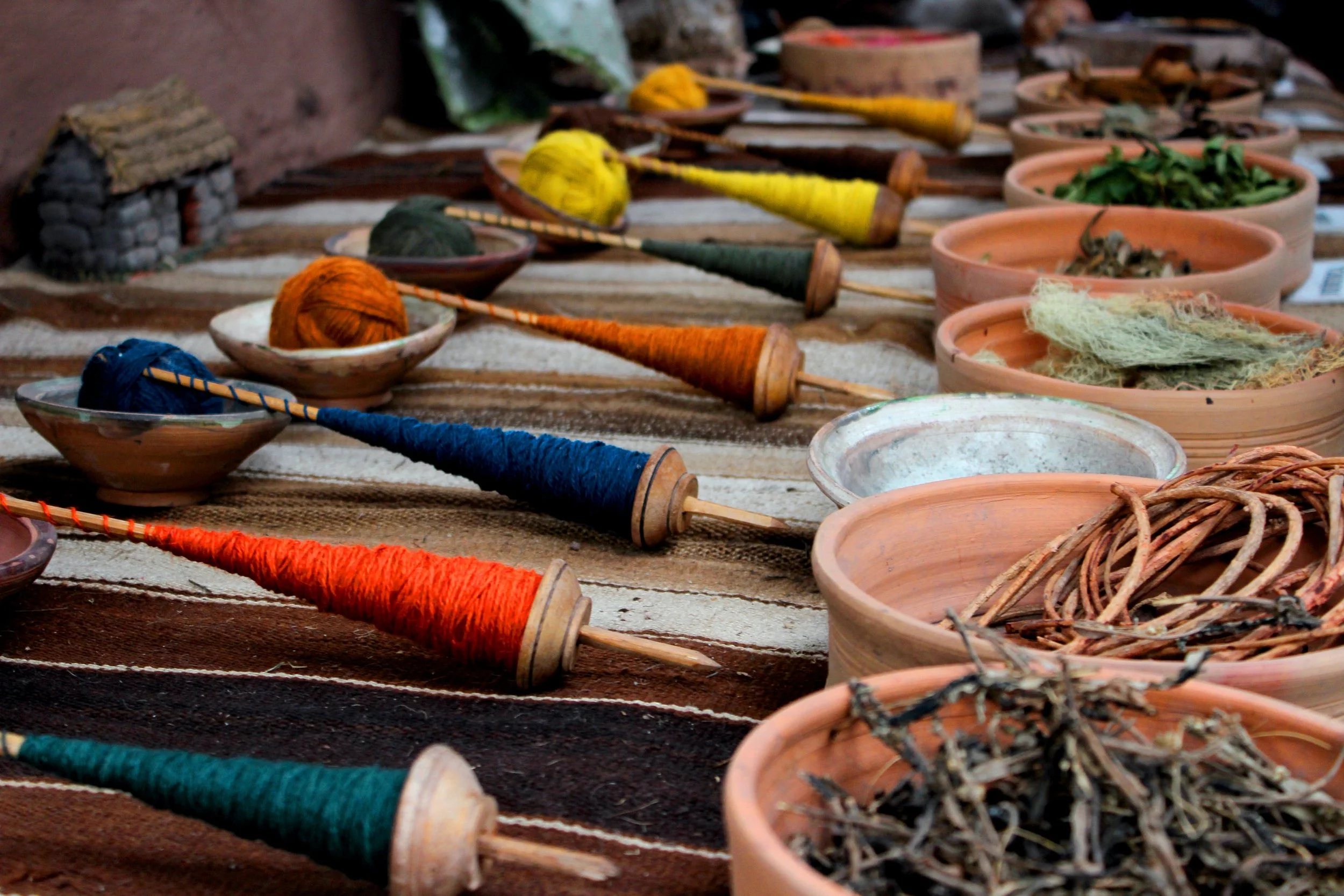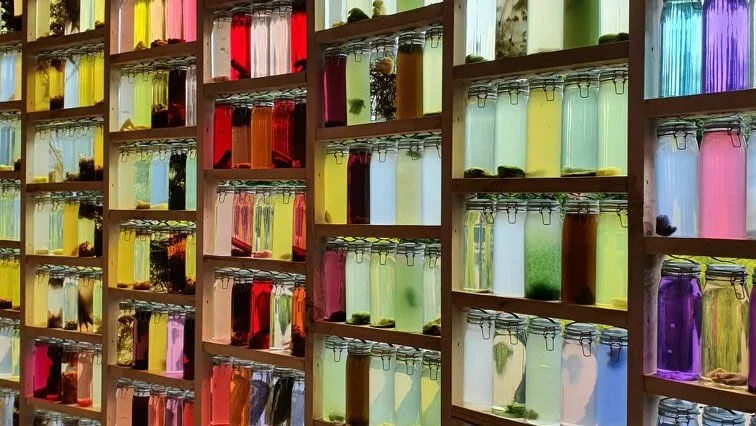Fashion for Good unveils a new library for new dye innovations
©Julian Mora
Fashion for Good, a non-profit organization, has launched a digital platform called Dyestuff Library, which provides technical information on sustainable textile dyes and dyeing techniques. The platform serves as a digital tool enabling partners to choose sustainable dyestuff based on competitive performance and environmental metrics for commercial use.
Supported by partners including Paradise Textiles, Bestseller, Adidas, Inditex, and Otto International, the aim of the new library is to help fashion brands and manufacturers reduce their environmental impact by using textile dyes, based on both competitive performance and environmental metrics.
Jars filled with water, vegetable dyes, and wool fabric. Image by Linda Bulic.
Textile dyes were derived from nature before synthetic dyes, discovered by WH Perkin in 1856, revolutionized the textile industry. Annually, over 10,000 tons of synthetic dyes are used by textile industries, but the toxic effects and ecological impact are extremely harmful to humans and the environment. Over the years, a significant amount of effort has gone into phasing out harmful chemicals and there are consistent efforts to develop non-hazardous chemistry. Today, many alternative dyes from natural sources such as plants, microorganisms, algae, and recycled materials are available. However, the lack of clarity on their performance and scale makes it difficult for the industry to switch to these sustainable options.
Over the course of a year, 15 selected dyestuff innovations will participate in lab and pilot trials. Innovators will go through extensive compliance and toxicity testing to ensure they are safe for commercial use. Testing and validating the performance of these innovative dyes and pigments on various textile substrates will be supported by our supply chain partners Paradise Textiles and RDD Textiles, University, and lab partners NimkarTek, Institute of Chemical Technology, and UNICAMP. Furthermore, participating in Fashion for Good partners, textile experts, and ZDHC will support this project with their expertise and encourage the next steps for industry implementation.
After the completion of the project, Fashion for Good will continue developing the library with additional innovators, materials, fabric constructions, testing methods, and innovative coloration types of machinery to enable innovation implementation in the fashion industry.

